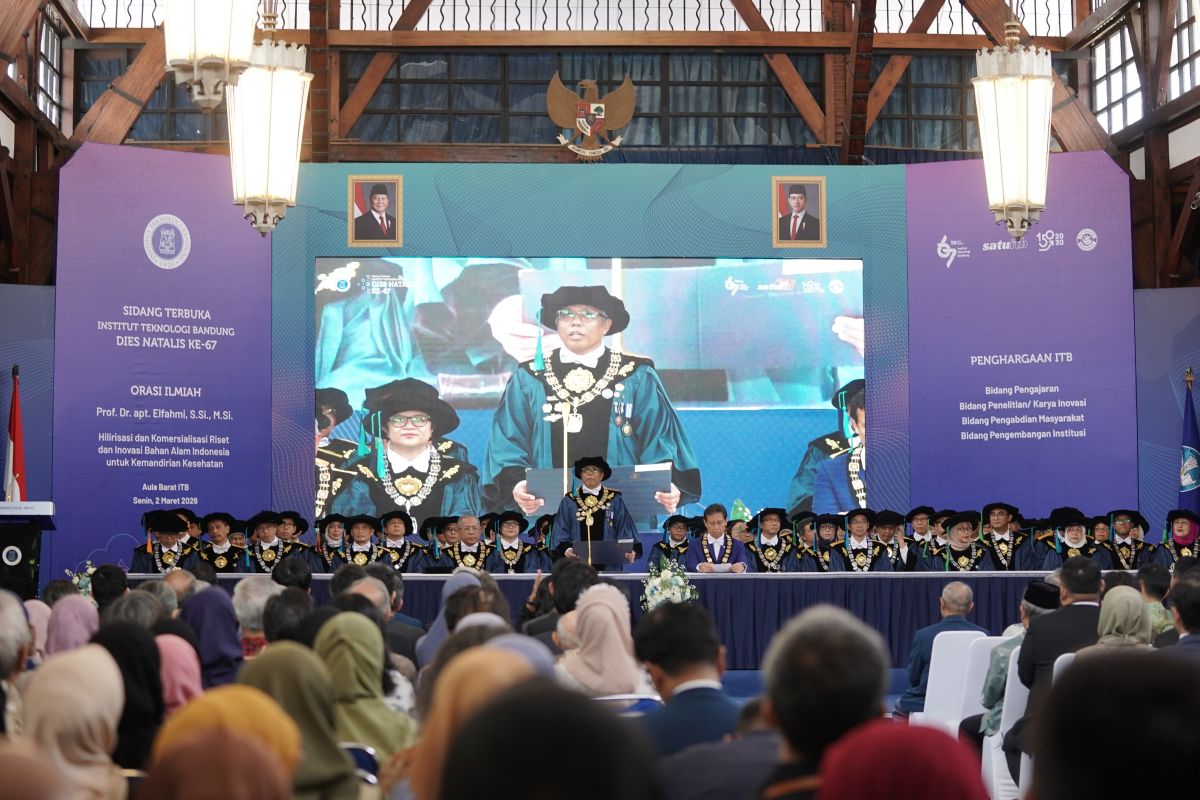Field Learning on SDGs: Oceanography Program Partners with Bening Saguling Foundation
By Maharani Rachmawati Purnomo -
Editor M. Naufal Hafizh, S.S.

BANDUNG, itb.ac.id — The Oceanography Study Program at Institut Teknologi Bandung (ITB) conducted a field lecture in the Capita Selecta course at Bening Saguling Foundation in Cihampelas Village, West Bandung Regency. This foundation operates within the framework of the Sustainable Development Goals (SDGs), focusing on empowerment, education, and impacts on the environment and society. This aligns with the course topic on SDGs.
BSF was initiated in 2014 out of Indra Darmawan's concern for preserving the Citarum River and empowering the surrounding community. He established a reading garden and a school named Sekolah Alam Tunas Inspiratif. The students pay their fees with 1 kg of recyclable waste per week. This education targets children of scavengers, orphans, and children of divorced parents in the area. In addition to formal education, the children are equipped with skills such as crafting from water hyacinth and trading by selling vegetables and eggs. Indra aims to break the cycle of poverty and prevent the children from becoming scavengers like their parents.

Students sorting waste collected from the solar-powered trash conveyor. (Doc. Special)
“Upon arrival, we gathered with BSF scholarship recipients and distributed oceanography storybooks. Then, we took a tour. First, we were shown the solar-powered trash conveyor, a machine used to collect up to 2,500 kg of waste per day and with a recycling capacity of up to 330,000 kg per year. Floating surface waste in the Citarum River is collected and brought to a sorting facility, where it is divided into recyclable and non-recyclable categories. This waste management aims to improve water quality, reduce flood risk, and protect biodiversity. The impact includes improving public health, climate change mitigation, and enhancing local tourism,” said Rio Andrian (Oceanography, 2021).
On Monday (22/4/2024), the 20 participants of the field lecture were also invited to see the water hyacinth cultivation site. In normal quantities, water hyacinth helps capture heavy metal pollutants. However, when it becomes overabundant, it turns into a weed that disrupts ecosystem balance.
The water hyacinth filling Saguling Reservoir is transformed into zero-waste products. The stems are crafted into handicrafts, the roots are used as plant media, and the remaining parts are made into briquettes and liquid organic fertilizer. Other products include bags, tissue holders, sandals, baskets, and gazebos. The crafters are the wives of scavengers who are empowered by this initiative.

Soap making from used cooking oil practice (Doc. Special)
The next session involved visiting maggot and laying hen farming. BSF offers solutions to reduce household production waste, one of which is utilizing organic waste for maggot feed. Maggots serve as the primary food for BSF's laying hens. The eggs produced have higher protein content than conventional eggs and are more affordable in the market. The maggot and laying hen farming cycle applies the principles of food sustainability. Through this cycle, problems in the Saguling Reservoir area can be addressed.
Finally, participants were given an explanation about the estimated distribution of stored carbon in mangrove vegetation. They also practiced making soap from used cooking oil.
Dr.rer.nat. Rima Rachmayani, S.Si., M.Si., a lecturer from the Environmental and Applied Oceanography Research Group, stated that collaborative and synergistic activities between the campus and BSF could provide a successful sustainability model from upstream to downstream of the Citarum River. “Hopefully, students will become more aware of environmental conservation and contribute to community empowerment, reflecting on what BSF has done,” she said as the course instructor.

.jpg)

.jpg)
.jpg)
.jpg)

